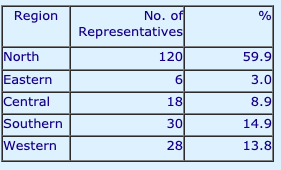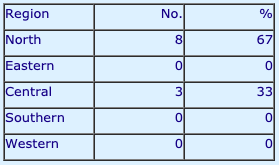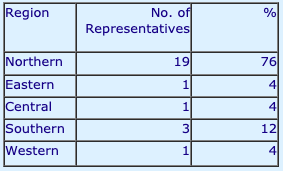The word “Sudan” in Arabic comes from the word “Asswad” which means “Black”, so Sudan was referred to black people and thus to what we know today as Sub-Saharan Africa -indeed, Mali was before called the French Sudan-. After the independence wave in Africa, Sudan became known as a sovereign independent state.
Since its independence, Sudan has known brutal coups d’états and civil wars notably with South Sudan and Darfur triangle. However today, Sudan keeps making international news after the fall of Omar Bachir’s Régime in 2019, thanks to a civil revolution that was followed by a coup d’état motivated by the Sudanese streets according to the Sudanese army.
Sudan was a very complex state to understand due to the horrible repression that Bachir’s régime was making on its opposition.
One of the books that grabbed my attention is called ‘the Black Book: Imbalance of Power and Wealth in Sudan’ written anonymously and published in two parts, the first one in 2000 and the second in 2002, but it was banned by the old régime. The book is believed to be written by someone with strong ties with Mouvement de Justice et d’égalité (JEM), which is known to be a soft movement. The book explains statistically how the power in Sudan is controlled by the North* and there is an imbalance in wealth’s distribution.
Context and Concepts:
To understand the context of the book, we need to understand first how Omar Bachir got into power. Sudan had a very democratic government led by Sadiq Al Mahdi, who was leading the Al Oumma party until now. Then Omar Bachir overthrew the democratically elected government through a military coup and established a dictatorship. Bachir has been president of Sudan for 30 years, but the country failed to develop. We should also note that Omar Bachir is a member of the Sudanese Muslim Brotherhood strongly affiliated with the Egyptian Muslim Brotherhood, which sadly has been violent starting 1927. So since Bachir took power, there was the issue of the south and Shari’a (Islamic Law). Bachir imposed Shari’a and the South refused it because they were majority Christians and Autochthonous, and simply they could not relate to Islamic law. To counter the Sudanese Muslim Brotherhood in Sudan, Mohamed Mahmoud Taha created the Republican Brotherhood in Sudan, which was an ‘Islamic’ movement and not an ‘Islamist’ one.
Analysis:
“The black book: Imbalance of power and wealth in Sudan” is written by people who are Islamists and left the Muslim Brotherhood movement, which we can feel it in the writing style used in the original version. The author argues that if you have a civil war in Africa, then the roots of the conflict must be the imbalance of internal power and wealth. The black book shows different tables of distribution of wealth, distribution of ministers, the regional revenue, and expenditure of the Sudanese government. And unfortunately, the only conclusion is that everybody pays taxes but not everybody gets what they deserve.



In my opinion, the black book is most likely written by Khalil Ibrahim who is affiliated with JEM. The oppression was so huge that it created unnecessary regional divisions. A couple of tribes in the East were smuggling beers from Erythrea, and they bring it to Sudan because the Muslim Brotherhood banned alcohol in Darfour. Moreover, the South was very clear and loud about their concerns, if you keep the Shari’a law, then we leave. So, Bachir found himself in front of two choices: either oil or Shari’a. Unfortunately, the Muslim brotherhood did the concession to leave the South just to keep Sudan Islamic; Otherwise, Sudan will be forced to become a secular state which was a big “NO” for the brotherhood. That is why a referendum was conducted in 2011, and the South Sudanese preferred independence.
So in October and December 2018, Sudan had manifestations everywhere against the régime, and it was led by the Sudanese Professionals Association (SPA) which pressured the streets and was considered as opposition. SPA is a secular movement, which can be seen from the writing style in their official website, the language is obviously not Islamic. In April 2019, Bachir somehow was convinced that Islam gave him the right to kill two-third of his population to remain in power, and thus ordered a massacre (DabangaSudan, 2019). Thankfully, the Sudanese army responded with an immediate military coup to get rid of Bachir right after the general hearing.
Some scholars see that what happened in Sudan is a typical coup d’état, but others think that this was not a military coup or a revolution with the traditional meaning. They believe that the ‘Sudanese Spring’ is the kind of French Revolution or Iranian Revolution thing and that it is much more different and successful than the 1952 Sudanese revolution.
Reflection:
We also should understand that the Sudanese military is seen as affiliated to Muslim brotherhood as well (SudanTribune, 2019). And we should remember that this army was ideologized for the past 30 years, so we should understand their Islamist way of thinking.
It is a fact that in Africa, domestic politics affects international politics and vice-versa. That’s why, the coup d’état in Sudan alarmed the international community including the United States of America, and Saudi Arabia gave three billion dollars to the new Sudanese leadership to affect domestic politics (Saudi Arabia’s war against Muslim Brotherhood in the region). President Bachir did not realize the obvious fact that Sudanese people have a tight connection with Britain, Netherlands, Egypt, and also Ethiopia. So, they were noticing the development’s differences especially with Ethiopia that gives the image of the government that speaks for its people led by the Prime Minister, and therefore by the people.
If we have a closer look a the cabinet of Ethiopia, we will notice that they have a representation of Muslims in their government even if they are majority Christian. The Ethiopian government is trying to diversify its ethnic, religious, and gender representation so that it stays updated about the needs of each region and gives it to them. If you give the people what they need, then you have their support, which projects a healthy balance of power and wealth. In fact, Sudan used to do better and they had a Southern Muslim Defense Minister in 1981 called Gismalla Abdalla Rassas. Nevertheless, Sudan of Bachir basically wanted a part of the country to be Muslim, speaks Arabic, wearing the same, and all the rest is second-class citizens.
The first step to re-legitimize democracy in Sudan is to say ‘yes’ to a secular state, then we can talk about strong institutions. Sudan is very similar to Nigeria, but one is falling apart while the other is holding it together. Sudanese people still don’t feel like they belong to the government and the government does not belong to them. That also explains why not many people went to the streets when the military coup was declared. The people want something absolutely different, and they do not trust the ideologized army. Even if post-Bachir Sudan seems doing fine now, the world is concerned about the army panicking about the progressive demands of the people, and end up using arms.
References:
- Abdullahi El-Tom (2003). “The Black Book of Sudan: Imbalance of Power and Wealth in Sudan”. Journal of African National Affairs. 1 (2): 25–35.
- DabangaSudan, “El Tayyar editor: Al Bashir ordered massacre before coup“, 21 April 2019.
- SudanTribune, “Sudan’s military council wants to bring Islamists to power again: opposition“, 22 April 2019.
- The Black Book of Sudan: Imbalance of Power and Wealth in Sudan (2002).
North*: North is referred to as the Northern region of Sudan, and not the ‘current Sudan’.

